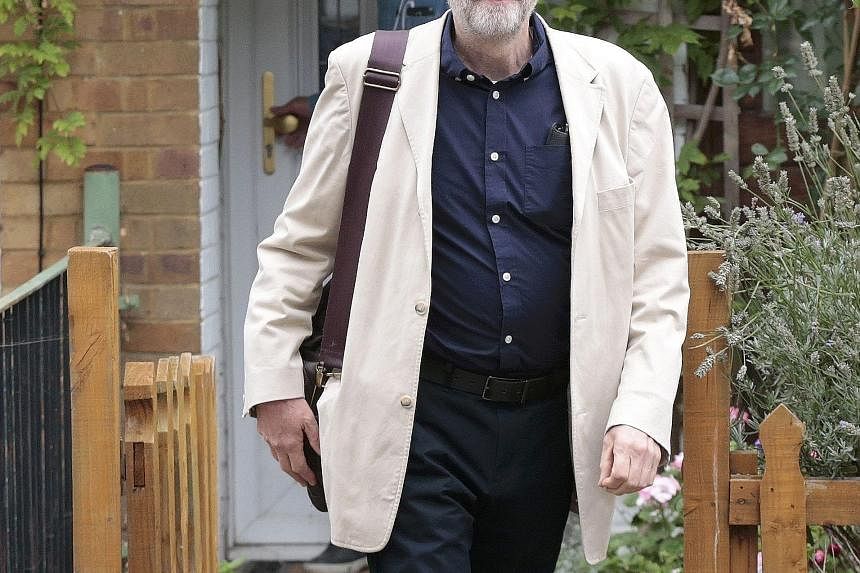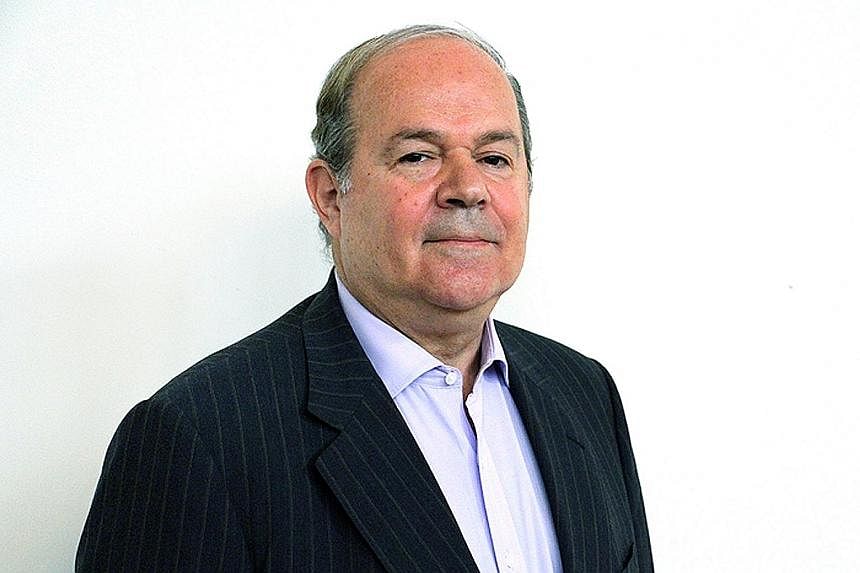Having stunned most of Britain's politicians by winning the leadership of the opposition Labour Party despite his record on the far-left fringe of the country's parliamentary life, Mr Jeremy Corbyn was confidently expected to live down his firebrand reputation by appointing a team of colleagues holding more centrist political views.
But he confounded predictions yet again, by picking a shadow Cabinet almost as inexperienced and largely as left-wing as himself, thereby confirming that Labour is experiencing not just a leadership change, but a full-scale ideological revolution, pulling one of Europe's hitherto most successful Socialist movements sharply to the left.
With a general election not due until 2020, appointing a Labour shadow Cabinet - in effect, a government-in-waiting - is a technicality, since none of the people identified as potential future ministers is likely to taste power any time soon. Still, the selection of shadow Cabinet members is important, since it is the surest way for a new Labour leader to promote new talent.
Furthermore, precisely because the elections are so far off, a Labour leader can use shadow Cabinet appointments to heal internal party divisions, particularly useful for Mr Corbyn, who won the Labour leadership only by marshalling the support of the party's wider membership against his fellow MPs, most of whom continue to mistrust him.
Yet all the appointments which he made suggest that he regards party unity of secondary importance to his more immediate task of taking Labour on a sharp left-wing swing.
Many of the party's centrist politicians were not considered for the shadow Cabinet; the exception is Mr Andy Burnham, a centre-right politician and Corbyn rival, who has now been appointed shadow Home Secretary.
Mr Corbyn has also discarded his initial promise to reserve at least half of all the senior party positions for women, leading a local journalist to mischievously point out that the twice-divorced Mr Corbyn seems to have married more women than he ever promoted to positions of political responsibility.
But the biggest surprise is the appointment of Mr John McDonnell as shadow finance minister. For, if anything, Mr McDonnell is further to the left of Mr Corbyn. He first courted notoriety in 2003, when he praised Northern Ireland's terrorists as people who should be "honoured" for their "bravery" in fighting the "British occupation". He once offered to "assassinate" prime minister Margaret Thatcher.
Mr McDonnell's main current economic policy is to advocate the re-nationalisation of Britain's utility companies without offering existing owners compensation, the punishment of "very rich" firms and the imposition of a 60 per cent income tax band on wealthy individuals.
He also seems to struggle with his English language. His official biography lists "fermenting" the "overthrow of capitalism" as his hobby; presumably, Mr McDonnell wanted to say "fomenting", rather than to suggest that he was engaging in some new brewing process.
For the moment, the British media is treating the formation of the new shadow Cabinet as pure amusement: Commentators portray Britain's new opposition leaders as a band of aged hippies who, to their own surprise, are suddenly thrust into the limelight.
However, matters will turn serious for Mr Corbyn tomorrow, when he faces Prime Minister David Cameron in his first public parliamentary showdown. Mr Cameron plans to use the occasion for a debate on whether Britain should intervene more directly in fighting the Islamic State in Iraq and Syria (ISIS) terrorist network. But that's just about the worst topic for Mr Corbyn, who is committed to abolishing Britain's nuclear weapons, opposes any use of force and once claimed the death of Al-Qaeda leader Osama bin Laden was a "tragedy". Tomorrow's main challenge for Mr Cameron is not how to tear into his new Labour opponent but, rather, how to do so without appearing to be too cruel.
Labour MPs, who know that their party has no chance of regaining power with someone like Mr Corbyn at the helm, are divided on what they should do. Some are advocating loyalty to him. But others, like Mr Peter Mandelson, the architect of the pro-market reforms which propelled Labour to power during the last decade, are openly calling for a party revolt: "The danger is that Labour simply decides to muddle through, resigning ourselves to our fate rather than doing anything big enough to alter it," he said.
And there is no doubt that history is on Mr Mandelson's side. For, since the start of the 20th century, the Conservative party has had 16 leaders, with 13 becoming prime ministers. Labour, by comparison, has had 22 leaders, and only six of them won power, largely because the party kept picking leaders like Mr Corbyn.


